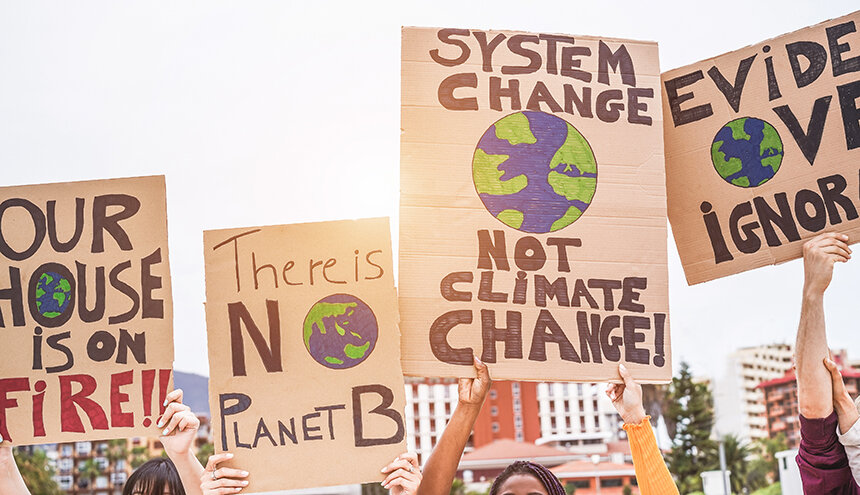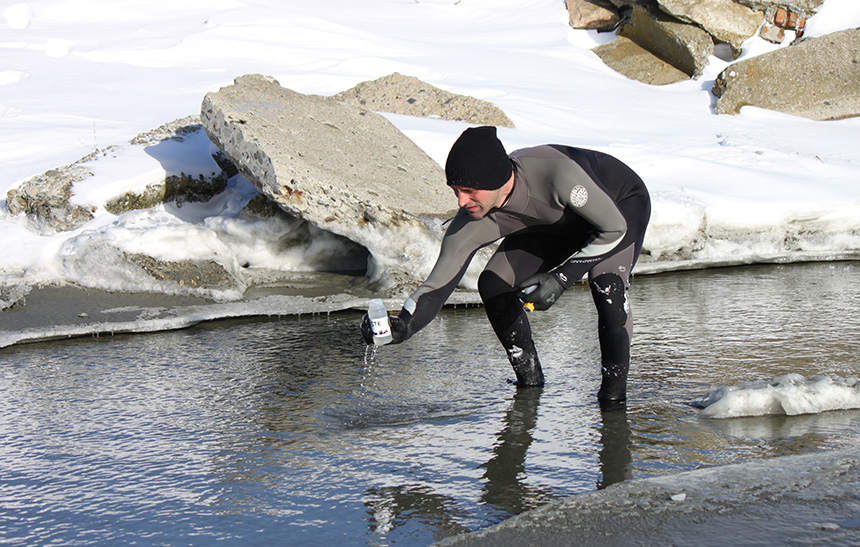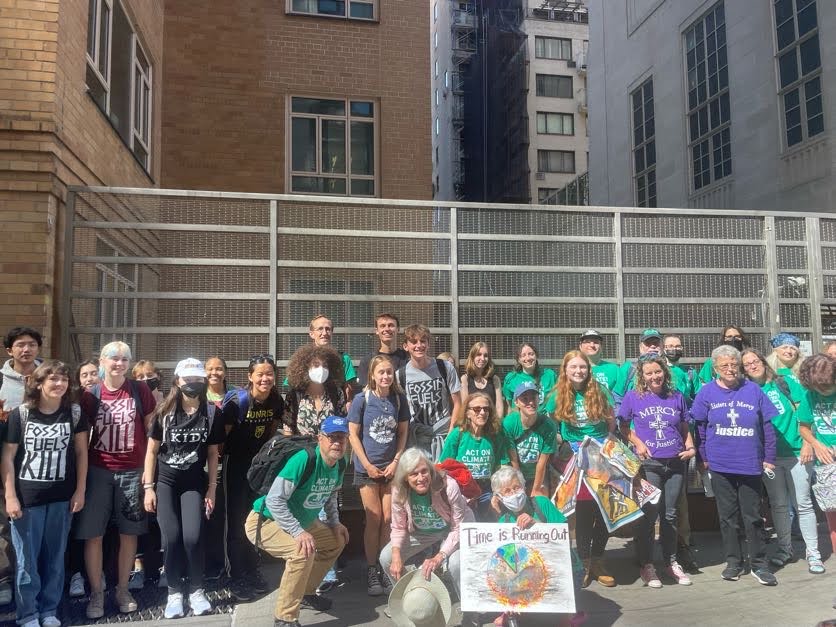Local Food Key Ingredient in Curing Climate Injustices
March 16, 2023
The opening question was to the point: What are the barriers to sustainable food? The three answers were equally concise: Farmland is expensive, especially in urban areas where it’s also likely to be contaminated by lead or other pollutants.
In response to the growing threat posed to Rhode Island by the climate crisis, the Lippitt House Museum, the Providence League of Women Voters, and the Southside Community Land Trust recently sponsored a community conversation to discuss how urban land supports sustainable food availability for diverse communities.
As one of the most urban states in the country — the density of the state’s population is second only to New Jersey — the three panelists addressed how Rhode Island’s land is used and by whom. From their point of view, the use isn’t just, and it seldom mitigates the climate crisis.
During the March 14 online discussion titled “Land, Food, and Climate Change,” the panelists — Chris Gaynor, Rhode Island Department of Environmental Management; Julius Kolawole, African Alliance of Rhode Island; and Jake Stanton, Southside Community Land Trust — also discussed efforts underway to empower communities disproportionately impacted by environmental and public health risks.
Kolawole, director and co-founder of the Providence-based African Alliance of Rhode Island (AARI), noted climate change “is a compelling situation” for low-wealth communities and people of color.
“Climate change impacts every aspect of our lives,” he said.
He spoke about how the high temperatures in July — made worse by the heat-island effect that many marginalized communities endure — and the shortage of water that makes urban farming particularly challenging.
“You can see the mirages coming off the asphalt in that heat,” Kolawole said.
Gaynor, who, through a partnership with The Nature Conservancy, is DEM’s climate justice specialist, noted climate justice is all encompassing and includes energy, land, and food justice.
He said the shared idea of what a generous Rhode Island should look like is warped by legacy exclusion. That generous vision, he said, needs to include food and land equity.
Food justice is about addressing access to healthy and affordable food for low-wealth and disenfranchised communities. It seeks to ensure the benefits and risks of where, what, and how food is grown, accessed, distributed, and transported are shared equally.
Many neighborhoods in metropolitan areas, including in Rhode Island’s urban core, have little to no access to fresh food or full-service grocery stores — a situation often referred to as living in a “food desert.” Other marginalized communities are surrounded by “food swamps,” areas in which a large amount of processed foods, such as fast food and convenience-store fare, is available with limited healthy options.
Stanton, the food access associate for the Southside Community Land Trust (SCLT), noted many neighborhoods on Providence’s South Side and in Pawtucket and Central Falls rely on corner stores, where he said healthy food choices are expensive, limited, or nonexistent.
One solution to this climate justice problem is to encourage the growing of local food. To support such an effort, the availability of land is paramount — a difficult proposition in a state that has some of the highest-priced farmland in the country. (Also, Rhode Island’s transition to suburbanization has cost the state some 80% of its farmland since 1945.)
The state’s 40-page food strategy — Relish Rhody, published in 2017 — “envisions a sustainable, equitable food system that is uniquely Rhode Island; one that builds on our traditions, strengths, and history while encouraging innovation and supporting the regional goal of 50 percent of the food eaten in New England be produced in the region by 2060.”
That ambitious goal will be difficult to achieve without better protecting the farmland Rhode Island has left and without increasing the amount of urban space available to grow local food, even if that means going vertical, as Kolawole suggested.
Much of the work required to improve access to local food and feed the food insecure, however, falls to small-scale growers, volunteers, and nonprofits like AARI and SCLT.
All three speakers highlighted the importance of getting local healthy food into the hands of as many people as possible.
“Food is medicine. Food is important,” Kolawole said. “It’s also used as a weapon.”
The AARI, a volunteer-based nonprofit, has established six urban gardens in South Providence specializing in growing, selling, and making value-added products from African and local vegetables. The organization is the “supermarket of healthy food” for many neighborhood residents, according to Kolawole.
Among the other solutions to produce more local food and get it to more people suggested by the speakers and from the 53 people who attended the virtual event were: reduced-price produce for low-wealth families; increased support and financial assistance for urban growers and immigrant farmers; show children how to grow and cook food and talk with them about the importance of eating healthy; gardens and growing spaces should be part of all housing built with lower income people in mind; collaborate with advocacy organizations and communities to push for the development of programs, policies, and regulations; and people in power need to listen to these communities and the organizations that champion for them.
Kolawole also noted another simple way to lessen the climate injustices that plague disenfranchised communities is to enforce idling laws. He said delivery trucks visit the neighborhood where he lives Thursdays and Fridays and the idling of these vehicles doesn’t stop.
‘It doesn’t help with the air quality in my community,” he said.
Note: The Lippitt House Museum, the Providence League of Women Voters, and the Southside Community Land Trust are scheduled to host a second online community conversation March 21 from 6:30-7:30 p.m. The talk is titled “Public Health and Environmental Justice” and will feature three speakers — Monica Huertas of the People’s Port Authority, Vatic Kuumba of the Providence Racial and Environmental Justice Committee, and Dr. Dannie Ritchie of the Community Health Innovations of Rhode Island. The event is free. To register, click here.




What is missing from this article is how hydroponics resolves many of the concerns listed. We would not be going in soil that might be contaminated. We would use less water and electricity or fossil fuels to grow. We could be growing vertically to maximize harvest. I see empty lots and plots in Providence, Pawtucket, etc. that could be used. The other advantage would be partnering with charter and vocational schools to train a whole new generation of urban farmers.
Keep Metacomet Green has been trying to save 130 acres of green open space in East Providence for almost three years asking the city to purchase this treed sanctuary for a park, community center and community gardens. A line was drawn to include it in census tract 104 to put it into an Opportunity Zone. It qualified because of the below poverty line neighborhood surrounding it. A developer scooped it up and plans a heat island of asphalt and 4 and 5 story buildings which will not benefit the community. The community’s uprising falls on deaf ears at City and state level. Newspaper coverage has been extensive but still the developer wins so far. The community did rescue nine holes of the golf course area. It’s mostly wetland. Metacomet property was rezoned from Open Space to Mixed Use. Developer plans to begin building the heat island this spring.
Because of all the reasons given in the above story are the reasons we need the tomatoes grow proposed in Exeter by Mr. Shatner. Please towh council approval is necessary NOW.